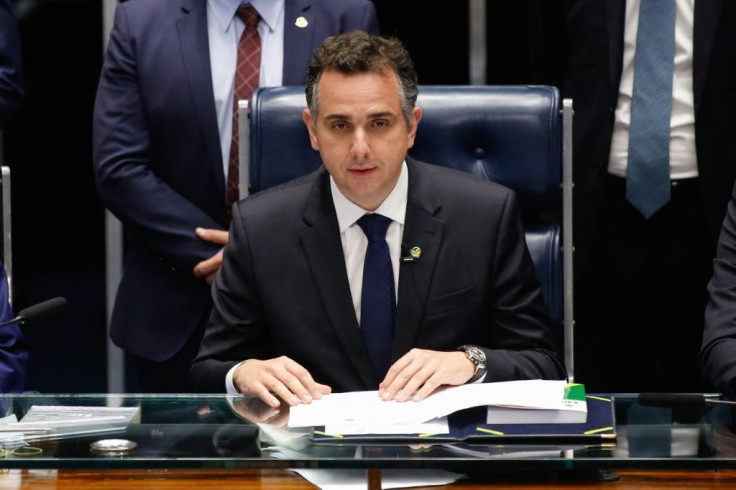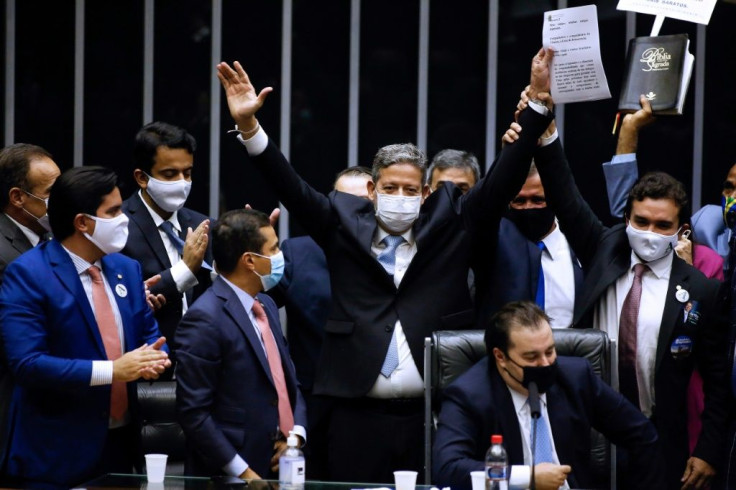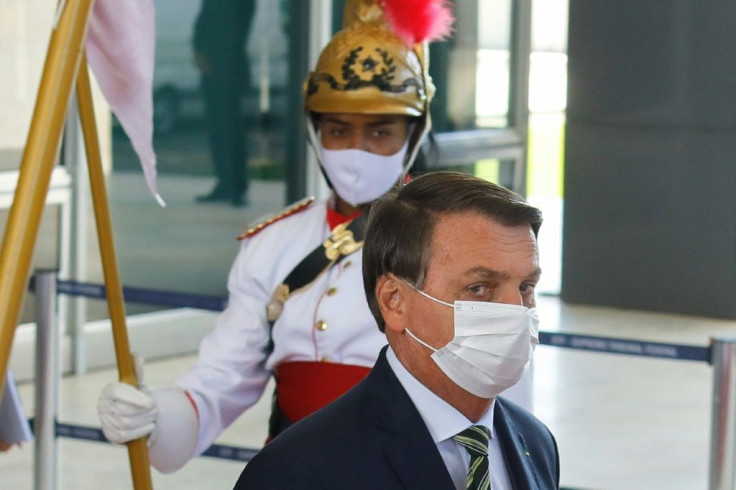Brazil Congress Elects Bolsonaro Allies As New Leaders
Brazil's Congress on Monday elected two allies of President Jair Bolsonaro to head the Senate and lower house, an important victory for the far-right leader as he seeks to re-galvanize his reelection efforts for 2022.
Arthur Lira of the Progressives (PP) won in the first round of votes for speaker of the Chamber of Deputies by 302 votes out of 513. Earlier, the Democrats' (DEM) Rodrigo Pacheco was elected Senate speaker with 57 out of 81 votes.

Bolsonaro hailed the results on Twitter, posting photos of himself with the new congressional leaders.
He had gotten personally involved in the leadership battles in both houses of the legislature, looking to improve his troubled relations with Congress and stave off the 61 impeachment requests he is facing.
The speakers of the Senate and Chamber of Deputies, who are elected for two-year terms by their colleagues, are key gate-keepers in Brazilian politics, with the power to decide which legislation comes up for a vote.

The lower-house speaker also has the power to accept or shelve motions to impeach the president -- no small matter for the leader dubbed the "Tropical Trump," who has racked up dozens of such requests halfway into his four-year term.
Lira promised "neutrality" in leading the House and asked for a minute of silence to honor the victims of Covid-19.
Bolsonaro, who currently has no political party, has struggled to get legislation passed in Congress, and is increasingly unpopular amid a raging second wave of Covid-19 in Brazil.

He won the election in 2018 with support from the business sector, vowing to push through a long-delayed program of privatizations and austerity reforms.
But he has made virtually no progress on that agenda. Instead, the economy has taken a beating from the pandemic, which Bolsonaro has insistently downplayed.
Seeking to use the leadership votes to bolster his clout with Congress, Bolsonaro struck an alliance with a coalition known as the "Centrao," or "big center," a loose group of parties whose priority has traditionally been gaining access to pork and government posts.

The main challenge to Lira came from Baleia Rossi of the Brazilian Democratic Movement (MDB), the candidate backed by previous lower-house speaker Rodrigo Maia (DEM).
Maia has a strained relationship with Bolsonaro, and reacted furiously when other lawmakers from his party defied him to back Lira.
He reportedly threatened to use his last day in the speaker's seat to open impeachment proceedings against Bolsonaro, before backtracking.
Bolsonaro faces some 20 impeachment motions over his chaotic handling of the pandemic, plus dozens more over alleged anti-democratic actions, environmental crimes and hate speech.
The voting process in the lower house could stretch into the early hours of Tuesday.
Even if Bolsonaro gets his candidate elected, he could still struggle to get things done in Brasilia before he comes up for reelection next year.
The "Centrao" is a demanding and fickle ally, whose betrayal played a key role in the impeachment and downfall of former president Dilma Rousseff in 2016, political analysts warned.
"The 'Centrao' is loyal when conditions are right. And currently, that's far from a given, with an extremely fragile economy and Bolsonaro's popularity falling," said political scientist Thiago Vidal of the consulting firm Prospectiva.
"They're going to hold his government hostage."
© Copyright AFP {{Year}}. All rights reserved.





















